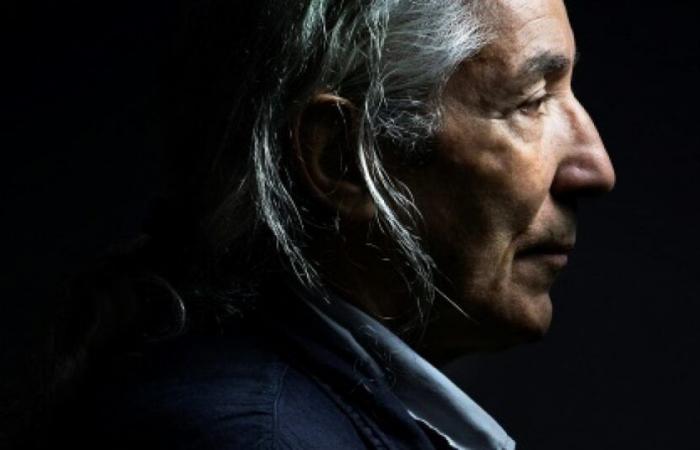Where is Boualem Sansal? Concern reigns all the way to the Élysée over the “disappearance” of the 75-year-old Franco-Algerian writer, in the fight against religious fundamentalism and authoritarianism, who has not been heard from for several days .
. Who is Boualem Sansal?
Sansal is one of the great voices of contemporary French-speaking literature, author of a work committed against obscurantism and for democracy.
Born in 1949 in Theniet El Had, Algeria, to a father of Moroccan origin and a mother who received a French education, he began writing at the age of 48 and published his first novel, “Le Serment des Barbarians”, two years later. He recounts the rise in power of fundamentalists which contributed to plunging Algeria into a decade of civil war that left 200,000 dead.
After a career as a teacher, business manager and senior civil servant, he was dismissed from the Algerian Ministry of Industry in 2003 for his critical position against the government, in particular on the Arabization of education.
In 2019, he participated in protests in Algiers against Algerian power which led to the resignation of President Abdelaziz Bouteflika.
. What happened to him?
According to several media, including the French weekly Marianne, the writer was arrested on Saturday at Algiers airport, coming from France.
However, no official information, nor even under cover of anonymity, has filtered out on his fate on both sides of the Mediterranean, in a context of tense relations between the two countries.
According to Le Monde, the Algerian authorities could have taken very badly the statements of Sansal to the media Frontières, reputed to be far-right, which take up the Moroccan position according to which Moroccan territory was truncated under French colonization for the benefit of Algeria.
According to the daily, this would be a “red line” for Algiers, which could result in the writer being accused of “undermining national integrity.”
Thursday evening, President Emmanuel Macron's entourage said that the latter was “very concerned by the disappearance” of Boualem Sansal and specified that “state services are mobilized to clarify his situation”, without giving further details. on this file.
. What is Boualem Sansal's work about?
Boualem Sansal's work evokes without taboo, and in a sometimes caustic style, the history of Algeria, memory, relations with France, and tirelessly denounces Islamism.
Among his famous titles, “The German Village” (2008), censored in Algeria, evokes both the Shoah, the civil war in Algeria and the life of Algerians in the French suburbs.
In “2084, the end of the world” (2015), he takes Orwellian accents to denounce the threat that religious radicalism poses to democracies, by imagining Islamism in power.
Published in the prestigious Blanche de Gallimard collection, Boualem Sansal is no stranger to literary prizes in France: the French Academy awarded him its Grand Prix de la Francophonie, then its Grand Prix du roman for “2084, la fin du monde”.
. What were his positions?
His commitment and his warnings of Europe, and of France in particular, against the dangers of Islamism have earned this claimed atheist strong enmities. And the marked support from right-wing and far-right intellectuals and media, applauding his shock declarations on an “Islamic order” which would try “to establish itself in France”.
In Algeria, threats have increased since he went to Israel in 2014 to receive a literary prize.
His positions sometimes attract accusations of Islamophobia, which he tirelessly defends. “I have never said anything against Islam that would justify this accusation” but, “what I have never ceased to denounce is the instrumentalization of Islam for political and social ends,” he explained to AFP in 2017.
. What were the reactions?
Several French politicians, most of them on the right, have expressed their concern since Thursday, about former Prime Minister Edouard Philippe (“He embodies everything we cherish: the call to reason, freedom and humanism against censorship, corruption and Islamism”), to Marine Le Pen (RN) via Laurent Wauquiez (LR).
On the left, the boss of the PS Olivier Faure called for “his release”, and the socialists Jérôme Guedj and Laurence Rossignol also showed their support.
On the writers' side, Tahar Ben Jelloun called in the French weekly Le Point to “free” Boualem Sansal, while Kamel Daoud denounced in the same magazine the fact that his “brother” Boualem Sansal is “behind bars, like the whole of Algeria.
Kamel Daoud, winner of the Goncourt Prize this year, published at the start of the school year “Houris”, a dark novel set partly in Oran on the fate of Aube, a young woman who has been mute since an Islamist slit her throat on December 31 1999, and which caused him to be at the heart of a controversy.
After his publishing house Gallimard was banned from coming to the Algiers International Book Fair this fall, the Franco-Algerian writer is also the target of two complaints in this country. They accuse him, with his psychiatrist wife, of having revealed and used the story of a patient for the writing of “Houris”.






